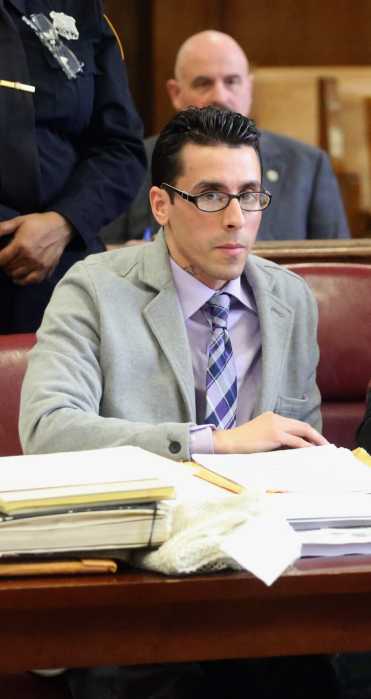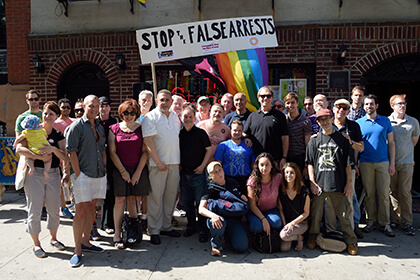BY DUNCAN OSBORNE | Following a month-long trial, a Manhattan jury quickly convicted Edwin Faulkner and Juan Carlos Martinez-Herrera of felony murder and other charges in the 2012 killing of John Laubach.
Jurors began deliberations late on October 20 and had to consider depraved indifference murder, a count that the prosecution did not emphasize in its closing statement; felony murder, based on the gay couple causing Laubach’s death while committing another felony; robbery and kidnapping, the felonies that formed the basis for the felony murder charge; and second-degree manslaughter.
They returned a verdict late on October 21.
Edwin Faulkner, Juan Carlos Martinez-Herrera face 25 years to life in prison
Going into deliberations, the defense, the prosecution, and the judge fought over the charges and legal instructions that the jury was to consider, with the lawyers making comments that suggested they viewed the instructions as complex. The speed with which a verdict was returned suggests the jurors were not at all confused. Altogether, jurors deliberated for about seven hours.
Faulkner and Martinez-Herrera were found guilty of felony murder, which carries a sentence of 25-to-life, kidnapping in the first degree, robbery in the first degree, and second-degree manslaughter.
Laubach, a 57-year-old gay man, was discovered dead, gagged, and bound in his Chelsea apartment in March 2012. Police quickly focused on Faulkner, 33, and Martinez-Herrera, 30, as the suspects. Roughly two weeks after the older man was found dead, the couple was arrested in Florida still holding many of Laubach’s possessions they had stolen.
The defense theory was that Laubach died from a heart attack during consensual sex with the couple in which he asked Faulkner to choke him while he performed oral sex on Martinez-Herrera, who testified in the case. The couple claimed they panicked after realizing Laubach was dead. That they then tied him up, presumably believing that he was dead, and stole his possessions went largely unexplained.
The prosecution’s theory was Laubach was killed during a robbery or kidnapping, but Lanita Hobbs, the assistant district attorney who handled the case with Juan Abreu, also an assistant district attorney, did not have to prove if a heart attack killed Laubach, as a defense expert asserted, or if he died by asphyxiation, as a prosecution expert said.
Daniel Parker, who represented Martinez-Herrera, certainly appeared to have presented a credible defense that did not explain all the facts in the case, but may have been sufficient to raise reasonable doubt. Parker repeatedly clashed with Bonnie Wittner, the judge in the case. Toward the trial’s close, Parker and Lori Cohen, his co-counsel, told Wittner that they viewed some of her rulings as errors that might lead a higher court to reverse any unfavorable verdict.
Daniel Scott, who represented Faulkner, was a quieter presence in the case.
The defense attorneys, the Manhattan district attorney’s office, and some of Laubach’s friends either declined to comment or did not respond to requests for comment.



































